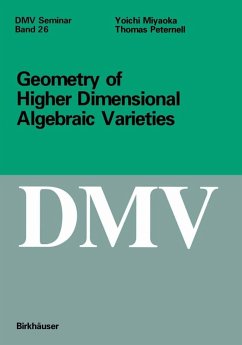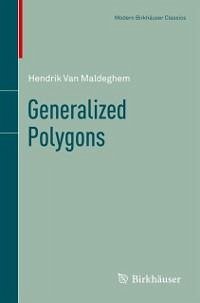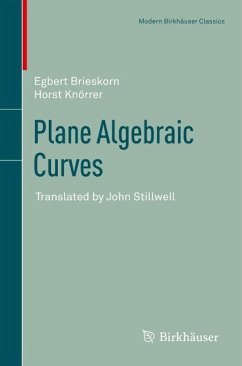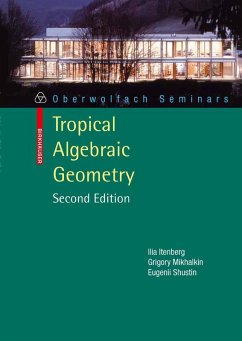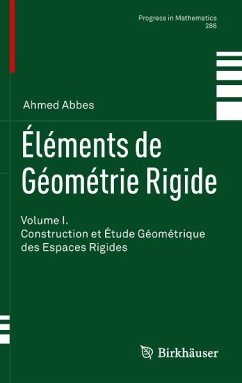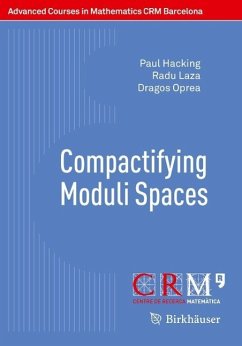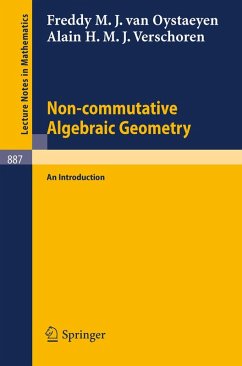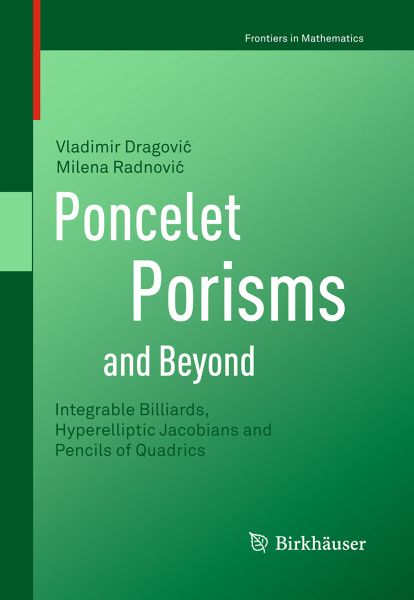
Poncelet Porisms and Beyond (eBook, PDF)
Integrable Billiards, Hyperelliptic Jacobians and Pencils of Quadrics
Versandkostenfrei!
Sofort per Download lieferbar
Statt: 64,15 €**
46,95 €
inkl. MwSt.
**Preis der gedruckten Ausgabe (Broschiertes Buch)
Alle Infos zum eBook verschenkenWeitere Ausgaben:

PAYBACK Punkte
23 °P sammeln!
The goal of the book is to present, in a complete and comprehensive way, areas of current research interlacing around the Poncelet porism: dynamics of integrable billiards, algebraic geometry of hyperelliptic Jacobians, and classical projective geometry of pencils of quadrics. The most important results and ideas, classical as well as modern, connected to the Poncelet theorem are presented, together with a historical overview analyzing the classical ideas and their natural generalizations. Special attention is paid to the realization of the Griffiths and Harris programme about Poncelet-type pr...
The goal of the book is to present, in a complete and comprehensive way, areas of current research interlacing around the Poncelet porism: dynamics of integrable billiards, algebraic geometry of hyperelliptic Jacobians, and classical projective geometry of pencils of quadrics. The most important results and ideas, classical as well as modern, connected to the Poncelet theorem are presented, together with a historical overview analyzing the classical ideas and their natural generalizations. Special attention is paid to the realization of the Griffiths and Harris programme about Poncelet-type problems and addition theorems. This programme, formulated three decades ago, is aimed to understanding the higher-dimensional analogues of Poncelet problems and the realization of the synthetic approach of higher genus addition theorems.
Dieser Download kann aus rechtlichen Gründen nur mit Rechnungsadresse in A, B, BG, CY, CZ, D, DK, EW, E, FIN, F, GR, HR, H, IRL, I, LT, L, LR, M, NL, PL, P, R, S, SLO, SK ausgeliefert werden.



